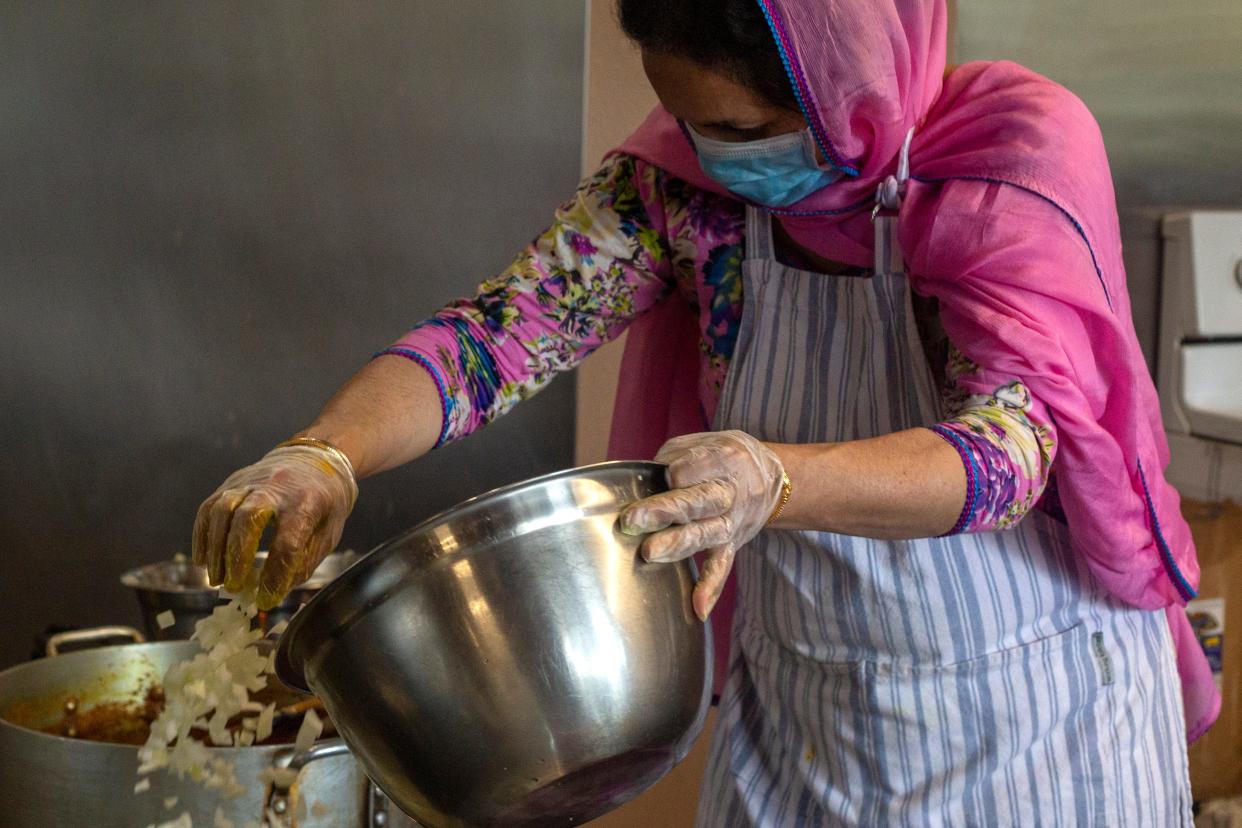Salem Sikh community hosts service project to honor mass shooting victims

Ten years ago, a white supremacist shot and killed six Sikh worshippers in Oak Creek, Wisconsin. A seventh victim was left paralyzed from the attack and died in 2020.
Salem's Sikh community is inviting residents to join them in remembering the victims and participating in a "seva," a selfless community service project.
They will meet at 5 p.m. Sunday in the parking lot of ARCHES, 615 Commerical St., to feed the unhoused.
Sikh communities nationwide will host similar events to honor the lives of those killed during the mass shooting.
Efforts to document hate
On Aug. 5, 2012, Wade Michael Page walked into a Sikh gurdwara, a house of worship, as they prepared their communal meal. Page was a U.S Army veteran and truck driver who had ties to neo-Nazi groups and the white supremacist music scene.
He turned the gun on himself after police shot him.
The Sikh Coalition, a Sikh-American advocacy group, urged the Federal Bureau of Investigation to begin tracking hate crimes against Sikhs, Hindus and Arabs following the attack. The FBI had previously only tracked hate crimes directed against Christian, Muslim, atheist, and Jewish people.
Shortly after the shooting, Harpreet Singh Saini, the son of one of the victims, testified before the U.S Senate to lobby for the change.
The FBI began tracking hate crimes against Sikhs, Hindus, and Arabs in 2015.
The FBI's Crime Data Explorer shows anti-Sikh hate crimes have increased year after year since it began tracking the data. There were 94 anti-Sikh offenses reported in 2020 and 56 in 2019. In 2018, that number was 44.
Service and humanity
The Sikh Coalition described events like the one organized in Salem and nationwide as efforts dedicated to combating and preventing the rising hate.
"The main reason why such horrific incidents happen is because we have not interacted with people who look different from us," Navneet Kaur, area project manager for the Salem event, said.
Similar to the annual Sikh Day Parade, the day is also an opportunity to connect with the broader community.
"We hope to reach out to general larger communities and give them a chance to see us in action, see who we are, and know us so that such horrific acts and senseless killings don't happen," she said. "It's our hope."
Members of the Sikh community are often mistakenly perceived as Muslim, particularly Sikh men who wear turbans and have beards. Sikhism is a separate religion from Islam with separate beliefs and practices.
One of the core principles of the Sikh faith is service to the community. Spending the afternoon with ARCHES to cook and provide dinner to the unhoused will help local volunteers apply those core principles, Kaur said.
This article originally appeared on Salem Statesman Journal: Salem Sikh community hosts service project to honor shooting victims

